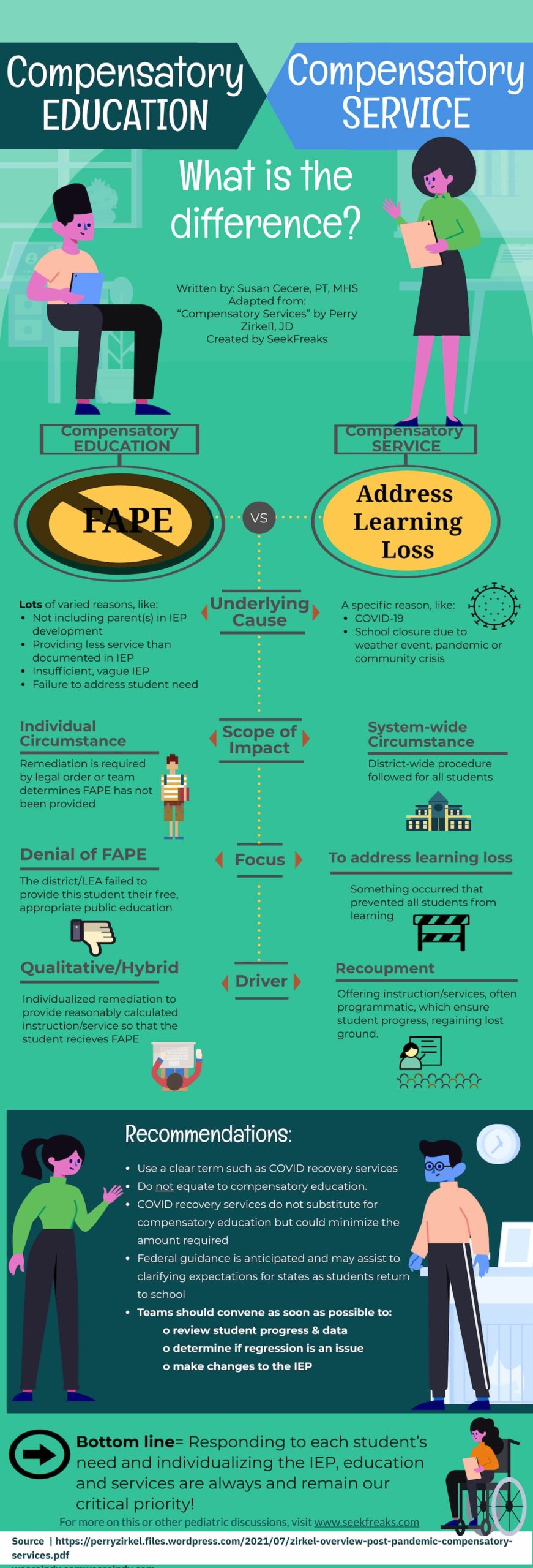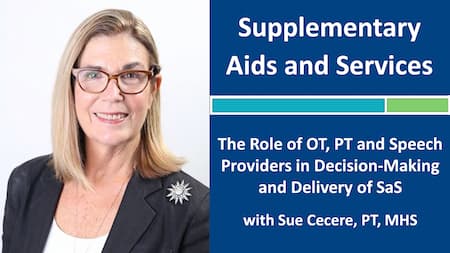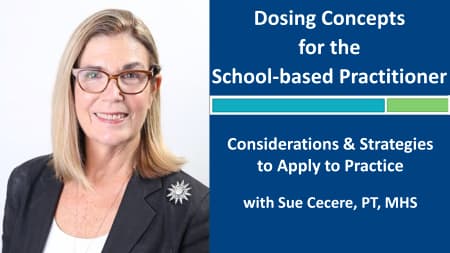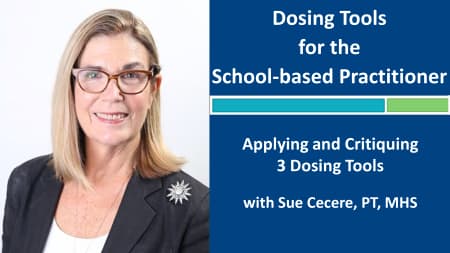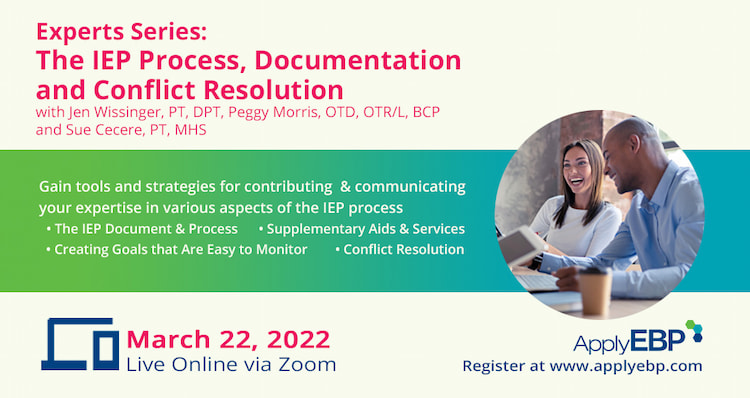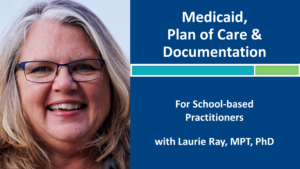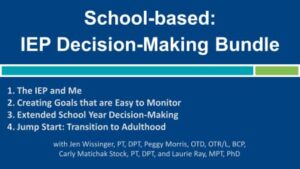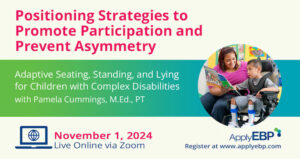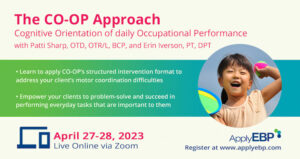Written by Sue Cecere, PT, MHS, owner of Sequoia School Based Therapy Solutions, LLC, a consulting company that supports districts, agencies and therapists in the practice of school-based therapy services by providing mentoring, professional development and administrative support. You can join Sue in her on-demand and live workshops via Apply EBP.
Is your team in the middle of deciding compensatory services? Are you seeking some guidance?
Perry Zirkel, Esq., Professor of Law Emeritus at Lehigh University and special education attorney recently published an article in the National Association of Special Education Teachers (NASET) e-journal. He described confusion regarding “compensatory services” as school systems gear up for the post-pandemic (hopefully?) 2021-2022 school year.
The uncertainty comes when folks do not clarify the difference between efforts to address learning loss, which is being called “compensatory services”, and “compensatory education” which is what a student receives when FAPE has been denied (sometimes but not always due to a legal ruling).
The misperception (using these different terms/service offerings interchangeably) is due in large part to the different types of decision resolution solutions offered under IDEA and clarifying who makes that decision. Some states recommend using FAPE denial as the standard for providing compensatory services.
What’s the difference?
To clarify and improve understanding, Mr. Zirkel offered a chart which is adapted here:
| Compensatory services: | Compensatory education: |
| Specific to COVID-19 | Not exclusive to COVID-19 |
| System wide procedure | Third-party remedial order |
| Focus on learning loss | Driven by a denial of FAPE |
| Driven by regression/recoupment | Qualitative or hybrid |
Suggestions to Alleviate the Confusion
Mr. Zirkel makes the following recommendations to alleviate confusion and respond to questions from parents and other school team members:
- Use a term, such as COVID recovery services, for clarity; do not equate it to compensatory education.
- Providing compensatory services will not substitute for providing compensatory education but could minimize the amount that must be provided.
- Federal guidance will be forthcoming and may assist with clarifying the position states should take as students return to full time in school learning.
- Teams should convene as soon as possible to:
- review student progress and data,
- determine if there is a regression issue and
- make IEP changes as appropriate when students return to full time in school instruction.
This could assist with mitigating the potential for providing separate and or supplemental compensatory services.
Final Recommendation
His last recommendation is for districts/LEAs to rely on the professional judgement of the IEP team, to be clear on any recommendations and provide what the student needs.
To quote Mr. Zirkel, “Although federal and state guidance continues to evolve, the solution ultimately is a local determination. It is a critical time for addressing the overriding question on a district-by-district basis — how to best use limited resources to maximize the outcomes of students with disabilities”.
Responding to each student’s need and individualizing the IEP, education and services are always and remain our critical priority!
To read more on national special education litigation and case interpretation, visit https://perryzirkel.com/author/pzirkel/
Join Sue and her colleagues in these continuing education courses
